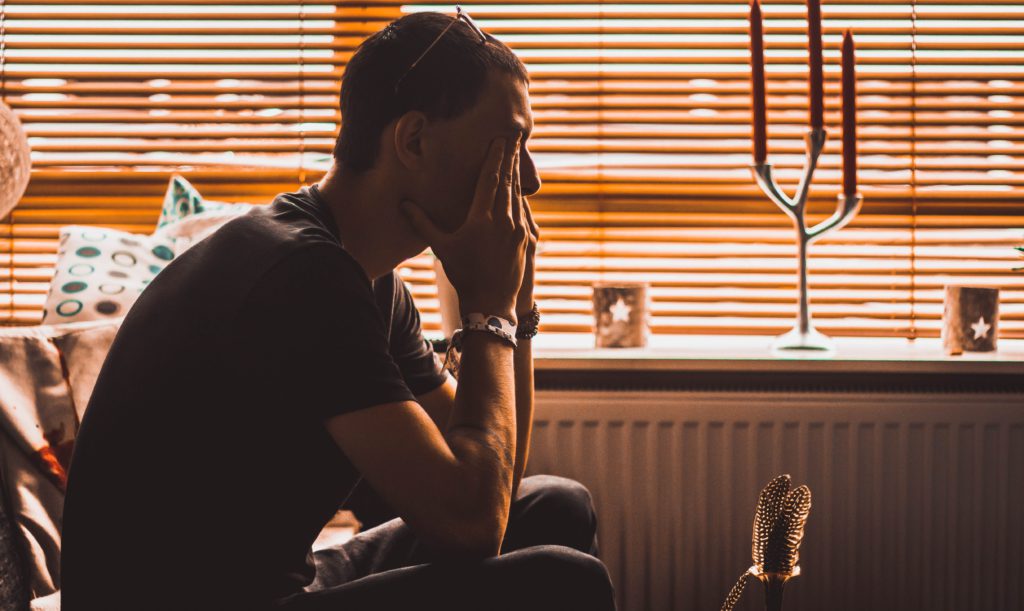Brandon Connect is a service funded by Islington Giving which provides outreach therapeutic support to 17–25-year-old males, whose progression in education, training or employment is being impeded by their mental health challenges.
As part of Mental Health Awareness Week (MHAW), we spoke to Geoffrey Baruch who runs the young people’s counselling service based in partnership with Arsenal in the Community, based in the Arsenal Hub. Geoffrey shares how the service has helped to transform the lives of the young men, as well as what makes it unique and effective. To learn more about the impact of Brandon Connect, read our young people’s stories.

Tell us about yourself and the work you do with Brandon Connect and Arsenal in the Community?
I have been at the Brandon Centre for 30 years. Between 1992 and 2018 I was the director of the Centre. I have since continued to work in a clinical capacity as Highly Specialist Project Clinician in mental health on Brandon Connect and young people’s counselling service in partnership with Arsenal in the Community at the Arsenal Hub.
I am a Fellow of the Institute of Psychoanalysis, qualified to treat adults, young people and children. I am also licenced to run a parent training programme for parents struggling with the challenge of teenage behaviour problems. I am an Honorary Consultant Psychotherapist at the Brandon Centre. I am responsible for the applications to Islington Giving and Cripplegate Foundation to support Brandon Connect and the counselling service in partnership with Arsenal in the Community.
“Young men with moderate to severe mental health problems are less likely than young women… to seek help from and engage with mental health services.”
Why is the Brandon Connect service vital in supporting young people’s mental health?
We found that young men with moderate to severe mental health problems are less likely than young women with similar problems to seek help from and engage with mental health services. The primary problem in nearly all cases presented in this part of the project has been chronic social anxiety – the persistent, intense, and chronic fear of being judged by others and of being embarrassed or humiliated by their own actions. Their fear can be so severe that it interferes with work, school, or other activities. The likelihood of young men not engaging with mental health services is often increased when they suffer from chronic social anxiety.
Our approach to treatment is flexible. Outreach, behavioural experiments, CBT and psychotherapy have been the principal approaches and treatment modalities. Behavioural experiments are an evidence-based intervention for tackling social anxiety. The aim is that the individual will develop confidence and a sense of achievement when he is successfully helped to engage in the ‘world’ outside the home, and thereby overcomes his anxieties.
“Young people attending an Arsenal in the Community programme were struggling with emotional and behaviour problems but were not accessing local mental health services for young people, perhaps due to stigma and lengthy waiting times.”
The overarching goal of the Brandon Centre/Arsenal in the Community counselling partnership has been the establishment of a counselling/psychotherapy service at the premises of Arsenal in the Community for 16-to 25-year-olds females and males attending an Arsenal in the Community programme in Islington. The idea developed from the observation that some young people attending an Arsenal in the Community programme were struggling with emotional and behaviour problems but were not necessarily able to access local mental health services for young people, perhaps due to stigma and lengthy waiting times.

Our approach to treatment is flexible. Outreach, behavioural experiments, CBT and psychotherapy have been the principal approaches and treatment modalities. Behavioural experiments are an evidence-based intervention for tackling social anxiety. The aim is that the individual will develop confidence and a sense of achievement when he is successfully helped to engage in the ‘world’ outside the home, and thereby overcomes his anxieties.
Can you tell us a bit more about the emotional and mental health challenges that young people you work with have been facing since the pandemic?
The service engages 17–25-year-old males whose progression in education, training or employment is being impeded by their mental health problems. Typically, they are stuck at home, many have dropped out of education before getting any qualifications or after under achieving and missing a lot of school. They often have sleeping problems: they sleep most of the day, are up at night on the internet playing games, watching You Tube videos, and other social media sites. Typically, they live with their mother, with or without siblings. Usually, they don’t have contact with their father, or the quality of contact is poor. In other words, they may not have positive male role models.
“A great strength provided by the Islington Giving support is that it has allowed the sort of long term work that is unavailable on the NHS but is needed to help some young people referred to both Brandon Connect and Arsenal in the Community Counselling Service with entrenched chronic social anxiety.”
These issues are no different post-pandemic except that the repeated lockdowns exacerbated and reinforced referred young men’s negative strategies for managing social anxiety i.e., spending a great deal of time online at night, sleeping in the daytime. Referrals from Arsenal in the Community have been more mixed. As well as referrals similar to the ones in the Brandon Connect service, others have been of better functioning individuals who are struggling with anxiety which has affected their participation in the Arsenal in the Community programme they are attending.

The support from Islington Giving has allowed long-term work on a weekly basis that is scarce in NHS mental health services but is needed to help many young people referred to both Brandon Connect and Arsenal in the Community Counselling Service with chronic social anxiety, generalised anxiety or depression.
“In terms of the young people I work with, many of whom have limited person to person contact, loneliness reinforces their social isolation and their fear of the outside world.”
This year’s MHAW theme is Loneliness. Can you share some insights on the impact of addressing loneliness and social isolation among young people in Islington?
Many young people I work with have limited person to person contact, and loneliness reinforces their social isolation and their fear of the outside world. This may be particularly true of young people traumatised by violence in or outside the family or traumatised by abuse. In many cases, their development, as young adults, is held back: they remain financially and emotionally dependent on their parent or carer which further reinforces their isolation and loneliness.
“The service aims to help the young person to achieve two outcomes which specifically aim to reduce social isolation: by addressing therapeutically the underlying anxieties that drive the social isolation and by active interventions…
My work aims to help the young person to achieve two outcomes which specifically aim to reduce social isolation: by addressing therapeutically the underlying anxieties that drive the social isolation and by active interventions that help the young person engage in education, training, employment or a constructive activity.
I think what is unique about our service has been the scope to work with the young person over a long period of time. I believe a mental health service with a time limit, or a maximum number of sessions offered will not be successful with some young people referred to our service. Sometimes the change with the young person is incremental and involves accepting relapses as well as improvements which hopefully ultimately prevail.
This feature is part of our content for MHAW, highlighting our collaboration with Brandon Centre and Arsenal in the Community. Find out more about the impact of Brandon Connect on young people, and sign up to our newsletter today for more inspiring content.






